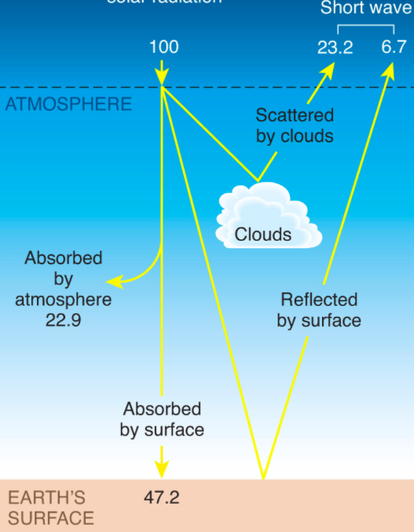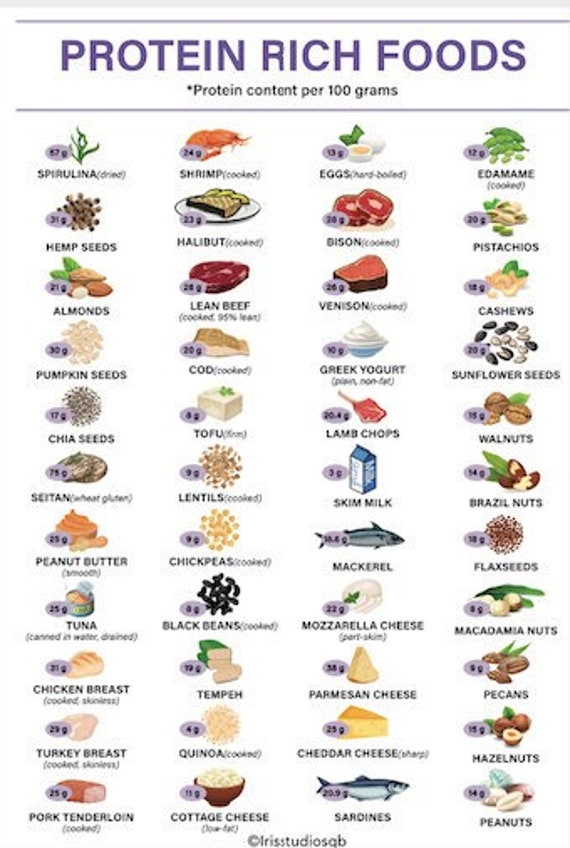
Over 70% of American adults are overweight or obese, according to a recent National Institutes of Health study. I’ve been there, struggling with the scale and feeling overwhelmed by conflicting weight loss advice. That’s why I’m excited to share this comprehensive guide on calculating weight loss in 2024. We’re going beyond simple calorie counting to explore cutting-edge techniques, advanced technologies, and holistic approaches that can revolutionize your weight loss journey.
Whether you’re just starting out or looking to fine-tune your approach, this guide will equip you with the knowledge and tools to achieve your goals effectively and sustainably. Let’s dive into the world of precision weight loss calculations and discover how to tailor your approach to your unique body and lifestyle.
Understanding the Fundamentals of Weight Loss
Weight loss isn’t just about eating less and moving more. It’s a complex process influenced by various factors, including your metabolism, hormones, and lifestyle. To effectively calculate and achieve weight loss, we need to understand the basic principles that govern this process.
Energy Balance and Calorie Deficit
At its core, weight loss occurs when you create a negative energy balance – that is, when you consume fewer calories than your body burns. This concept is crucial for effective weight management. By understanding how to calculate your daily energy expenditure and create an appropriate calorie deficit, you can set realistic weight loss goals and track your progress accurately.
Source: JK Geography
Your Total Daily Energy Expenditure (TDEE) is the number of calories your body burns each day. It includes your resting metabolism, physical activity, and the energy used to digest food. Accurately calculating your TDEE is essential for determining the right calorie intake for weight loss.
Once you know your TDEE, the next step is to create a calorie deficit that leads to sustainable weight loss. A deficit of 500-1000 calories per day is generally considered safe and effective, potentially resulting in a loss of 1-2 pounds per week. However, it’s crucial to avoid extreme deficits that can lead to nutrient deficiencies or metabolic adaptations.
|
Calorie Deficit |
Expected Weekly Weight Loss |
Sustainability |
|---|---|---|
|
250 calories/day |
0.5 lbs (0.23 kg) |
Very High |
|
500 calories/day |
1 lb (0.45 kg) |
High |
|
750 calories/day |
1.5 lbs (0.68 kg) |
Moderate |
|
1000 calories/day |
2 lbs (0.91 kg) |
Low |
While calorie balance is the primary driver of weight loss, the distribution of macronutrients – proteins, carbohydrates, and fats – can significantly influence your weight loss efficiency, body composition, and overall health. Let’s explore how to calculate optimal macronutrient ratios for weight loss, taking into account factors such as your activity level, body composition goals, and personal preferences.
Macronutrient Balance and Weight Loss
Protein plays a crucial role in weight loss by helping preserve lean body mass and increasing satiety. During a calorie deficit, your body needs more protein to maintain muscle tissue. Calculating your optimal protein intake for weight loss typically ranges from 1.6 to 2.2 grams per kilogram of body weight.
A recent study published in the Journal of Cachexia, Sarcopenia and Muscle found that protein intake ranging from 1.2 to 2.0 grams per kilogram of body weight is optimal for building muscle, depending on factors such as goals, age, and activity level [“Best Macro Tracking Apps of 2024” (Fortune)].
Source: Etsy
Balancing your carbohydrate and fat intake is crucial for a well-rounded weight loss approach. The right balance can enhance your adherence to your weight loss plan and support your overall health. We’ll explore how to calculate appropriate ranges for these macronutrients based on your individual preferences, metabolic health, and activity level.
Advanced Calculation Methods for Weight Loss
In 2024, we have access to advanced technologies and methodologies that allow for more precise weight loss calculations. These cutting-edge approaches take into account individual variations and specific health goals, providing a level of personalization that was previously unattainable.
Metabolic Rate Testing and Analysis
Accurate measurement of your metabolic rate can significantly improve the precision of your weight loss calculations and predictions. Traditional methods of estimating metabolic rate often fall short, leading to inaccurate calorie recommendations. Let’s delve into modern metabolic testing techniques that provide a more precise picture of your energy expenditure.
Indirect calorimetry is a sophisticated method for measuring your Resting Metabolic Rate (RMR). This technique analyzes the oxygen you consume and the carbon dioxide you produce to determine how many calories your body burns at rest. The results from indirect calorimetry can provide a more accurate basis for your calorie calculations compared to predictive equations, potentially leading to more effective weight loss strategies.
Source: YouTube
Dual-Energy X-ray Absorptiometry (DXA) scans offer precise measurements of your body composition, including fat mass, lean mass, and bone density. This advanced imaging technique provides a level of detail that surpasses traditional methods like skinfold calipers or bioelectrical impedance. Tracking changes in your body composition can offer valuable insights into your progress beyond what the scale shows.
Source: DEXA SCAN NEAR ME
AI-Powered Weight Loss Prediction Models
Artificial intelligence is revolutionizing the way we approach weight loss calculations. AI algorithms can integrate multiple data points to provide more accurate weight loss predictions and personalized recommendations. These advanced models can help you set realistic goals, anticipate plateaus, and make data-driven adjustments to your weight loss plan.
Machine learning algorithms are taking personalized nutrition to the next level. These sophisticated systems can analyze factors such as your genetics, gut microbiome, and lifestyle patterns to suggest optimal calorie intake and macronutrient ratios for weight loss. By leveraging these AI-powered tools, you can fine-tune your diet and make more informed decisions about your nutrition.
Advanced algorithms can now forecast your weight loss trajectory based on current data, helping you set realistic goals and adjust your strategies as needed. These predictive analytics consider various factors and can help you stay motivated and on track throughout your weight loss journey.
Source: JCI Insight
Integrating Technology for Accurate Weight Loss Tracking
In 2024, a wealth of technological tools is available to enhance the accuracy and convenience of weight loss tracking. From smart scales to wearable devices, these innovations provide detailed insights into your body composition and metabolic health.
Smart Scales and Body Composition Analyzers
Smart scales have revolutionized the way we track weight loss progress. These devices go beyond measuring just your total body weight, providing detailed body composition data that allows for more nuanced tracking of your journey. Let’s discuss the different types of smart scales available, how they work, and how to interpret the data they provide.
Bioelectrical Impedance Analysis (BIA) is the technology behind many smart scales and body composition analyzers. This method uses low-level electrical currents to estimate your body fat percentage, muscle mass, and hydration status. While BIA has its limitations, it can be a valuable tool for tracking changes in your body composition over time, providing a more comprehensive view of your progress beyond just the number on the scale.
Source: ResearchGate
The true power of smart scales lies in their ability to sync with smartphone apps and fitness trackers. This integration enables automated data collection and analysis, providing you with a comprehensive view of your health and fitness. By connecting your smart scale with various health apps and wearables, you can create an ecosystem of devices that work together to provide more accurate long-term weight loss calculations and insights.
Continuous Glucose Monitoring (CGM) for Metabolic Insights
Continuous Glucose Monitoring (CGM) devices are no longer just for diabetics. These small sensors provide real-time data on your blood glucose levels, offering valuable insights into your individual metabolic responses to different foods and activities. Understanding your glucose patterns can help you make more informed decisions about meal timing and composition, potentially enhancing your weight loss efforts and overall metabolic health.
Source: Australian Diabetes Educators Association
Glycemic variability refers to the fluctuations in your blood sugar levels throughout the day. By analyzing CGM data, you can identify foods and eating patterns that promote stable blood sugar levels, potentially enhancing your weight loss efforts and overall metabolic health. Using this information, you can fine-tune your meal planning and timing for optimal fat burning and energy levels.
CGM insights can revolutionize your approach to meal planning. By integrating this data with your weight loss calculations, you can create highly individualized nutrition strategies. Using your glucose response patterns, you can determine the optimal macronutrient balance, meal timing, and food combinations for your body. This personalized approach can help you maintain steady energy levels, reduce cravings, and optimize your body’s fat-burning potential.
Understood. I’ll continue from where I left off, following the instructions carefully.
Holistic Approaches to Weight Loss Calculation
Weight loss isn’t just about calories in versus calories out. Modern strategies in 2024 consider a broader range of factors, acknowledging the complex interplay of various physiological and lifestyle elements. Let’s delve into holistic approaches that take into account sleep quality, stress levels, and other often-overlooked aspects of health that can significantly impact your weight loss journey.
Sleep Quality and Duration in Weight Loss Equations
The impact of sleep on weight loss is increasingly recognized as crucial. Poor sleep can affect your metabolism, hunger hormones, and decision-making around food choices. Incorporating sleep metrics into your weight loss calculations and strategies can help you optimize your sleep patterns to support your weight loss goals.
Sleep debt accumulates when you consistently get less sleep than your body needs. Quantifying this debt and understanding its effects on your metabolic rate and appetite can help you adjust your calorie intake and exercise recommendations for more effective weight management. By calculating your sleep debt and interpreting its impact on your weight loss efforts, you can balance sleep recovery with your weight loss goals.
Your chronotype – your body’s natural circadian preference – can influence the optimal timing for meals and activities. Aligning your eating schedule with your circadian rhythm can optimize metabolic function and potentially enhance weight loss efforts. By determining your chronotype and calculating optimal eating windows based on this information, you can synchronize your meal timing with your body’s natural rhythms for improved energy levels and weight management.
Stress and Cortisol Considerations in Weight Loss
Chronic stress and elevated cortisol levels can impede your weight loss efforts. Incorporating stress metrics into your weight loss calculations provides a more comprehensive approach to managing your health and achieving your goals. Let’s discuss how stress affects your body’s ability to lose weight and explore methods to quantify and manage stress levels.
Stress can significantly affect your metabolic rate, potentially altering your calorie needs and weight loss progress. By quantifying the impact of stress on your metabolism, using both biomarkers and self-reported stress levels, you can adjust your calorie calculations to account for the metabolic effects of chronic stress. This ensures your weight loss plan remains effective even during challenging times.
Stress levels can fluctuate daily, impacting your body’s calorie needs and ability to lose weight. Implementing dynamic calorie adjustments that respond to these fluctuations can help maintain a consistent rate of weight loss despite lifestyle variations. Creating an adaptive system that modifies your calorie intake based on your current stress levels allows you to balance stress management with your weight loss goals for optimal results.
Precision Nutrition and Metabolomics in Weight Loss Calculation
Advances in metabolomics and nutrigenomics are revolutionizing weight loss strategies. These fields allow for highly personalized nutritional approaches based on your unique metabolic profile and genetic predispositions. Let’s explore how these cutting-edge sciences are shaping the future of weight loss calculations and how you can leverage them for more effective results.
Metabolomic Profiling for Personalized Weight Loss Strategies
Analyzing your metabolite profile can provide deep insights into your unique metabolic state, allowing for more precise calorie and macronutrient recommendations. Metabolomic profiling can help you identify specific metabolic inefficiencies and tailor your nutrition plan for optimal results.
Metabolomic analysis can reveal specific metabolic pathways that may be underperforming in your body. By identifying these inefficiencies, you can make targeted nutritional interventions to enhance your weight loss efficiency. Common metabolic inefficiencies can be addressed through specific dietary adjustments, potentially leading to more effective weight loss.
Individual variations in nutrient absorption can significantly impact the effectiveness of your weight loss plan. Understanding your personal absorption rates can lead to more accurate calculations of calorie intake and macronutrient needs. By assessing nutrient absorption and using this information to fine-tune your diet, you can optimize your nutrient intake for maximum benefit.
Genetic Factors in Weight Loss Calculations
Your genetic makeup plays a crucial role in how your body responds to diet and exercise. Incorporating genetic information into weight loss calculations can help predict individual responses to different approaches. Genetic testing can inform your weight loss strategy and help you create a truly personalized weight loss plan.
Source: Healthier Weight
Certain genetic variants can affect how your body responds to different diets. Analyzing these gene-diet interactions can guide more effective meal planning and macronutrient distribution for weight loss. Key genetic markers related to nutrition and metabolism can influence your optimal diet, allowing you to make informed choices about your eating habits.
Epigenetic factors – changes in gene expression that don’t involve alterations to the genetic code – can significantly impact your metabolism and weight loss potential. Factoring in epigenetic markers when calculating your calorie requirements can provide a more nuanced approach to weight loss. The dynamic nature of epigenetics means that lifestyle choices can influence these markers, potentially affecting your weight loss journey.
Dynamic Weight Loss Calculation Models
Modern approaches to weight loss calculation recognize the need for adaptive models. These dynamic systems account for your body’s ever-changing responses to diet and exercise over time. Let’s explore how these advanced models work and how they can help you maintain progress and prevent plateaus throughout your weight loss journey.
Metabolic Adaptation Algorithms
As you lose weight, your body adapts by lowering its energy expenditure – a phenomenon known as metabolic adaptation. Incorporating algorithms that predict and account for this metabolic slowdown can help you maintain progress and prevent plateaus. These algorithms work by adjusting your weight loss strategy over time, ensuring a consistent rate of weight loss despite your body’s adaptive responses.
Adaptive thermogenesis refers to the decrease in energy expenditure beyond what would be expected from changes in body composition alone. Estimating the degree of adaptive thermogenesis allows for timely adjustments in your calorie intake or energy expenditure to maintain a consistent rate of weight loss. By tracking adaptive thermogenesis throughout your weight loss journey, you can mitigate its impact on your progress.
As your body composition changes during weight loss, so does your metabolic rate. Implementing regular recalculations of your metabolic rate ensures that your calorie recommendations remain accurate throughout your journey. Periodic metabolic rate reassessment allows you to make data-driven adjustments to your diet and exercise routine, keeping your weight loss plan effective and tailored to your changing needs.
Non-Linear Calorie Cycling Strategies
Utilizing advanced calculations to implement strategic calorie cycling can help mitigate metabolic adaptation and optimize hormonal balance during weight loss. Non-linear approaches to calorie intake offer benefits that go beyond traditional, static dieting methods. These strategies can be implemented safely and effectively to maintain progress and metabolic health.
Refeeds – planned increases in calorie intake – can help maintain metabolic rate and adherence during extended weight loss periods. Determining the ideal timing and magnitude of these refeeds is crucial for their effectiveness. Calculating optimal refeed frequencies based on your individual factors and weight loss progress can help you incorporate these calorie increases without derailing your overall progress.
Your hormonal environment plays a crucial role in weight loss success. Incorporating calculations that predict hormonal responses to different calorie levels can guide more effective long-term strategies. Modeling these hormonal responses allows you to optimize your weight loss plan, balancing hormonal health with your weight loss goals for sustainable results.
Learnings Recap
Our exploration of weight loss calculation methods in 2024 has unveiled a complex landscape of science, technology, and personalized approaches. From the basics of energy balance to the intricacies of metabolomics and AI-powered predictions, we’ve covered a vast array of tools and techniques at your disposal. The key takeaway is that effective weight loss is no longer a one-size-fits-all endeavor. Instead, it’s a highly individualized process that requires a nuanced understanding of your body’s unique responses and needs.
-
Embrace technological advancements: Leverage smart scales, CGM devices, and AI-powered apps to gain deeper insights into your body’s responses and progress.
-
Adopt a holistic perspective: Consider factors beyond calories, such as sleep quality, stress levels, and hormonal balance, to create a comprehensive weight loss strategy.
-
Prioritize personalization: Utilize genetic testing, metabolomic profiling, and adaptive algorithms to tailor your approach to your unique physiological makeup.
-
Stay adaptable: Recognize that your body’s needs will change throughout your weight loss journey, and be prepared to adjust your strategies accordingly.
-
Focus on long-term sustainability: While advanced calculations can optimize your short-term progress, prioritize methods that support lasting health and weight maintenance.
As you embark on or continue your weight loss journey, remember that these advanced calculation methods are tools to inform and guide your decisions. They’re not rigid rules but rather sophisticated insights to help you make more informed choices. The most effective approach combines these scientific advancements with self-awareness, patience, and consistency.
Ultimately, successful weight loss in 2024 is about harnessing the power of data and technology while staying attuned to your body’s signals and needs. By integrating these advanced calculation methods into a balanced lifestyle that includes nourishing foods, regular physical activity, adequate rest, and stress management, you’re setting yourself up for sustainable success.
As research continues to evolve and new technologies emerge, stay curious and open to refining your approach. The field of weight loss science is dynamic, and what works best for you may change over time. Embrace the journey of self-discovery and optimization that comes with this data-driven approach to health and wellness.
Remember, achieving your weight loss goals is just the beginning. To maintain your results and continue your health journey, explore our personalized nutrition plans designed to support your long-term wellness objectives.
As you progress, regularly reassess your calorie intake needs to ensure you’re providing your body with the right amount of fuel for both weight loss and overall health. This ongoing process of evaluation and adjustment is key to long-term success in weight management.








Add comment